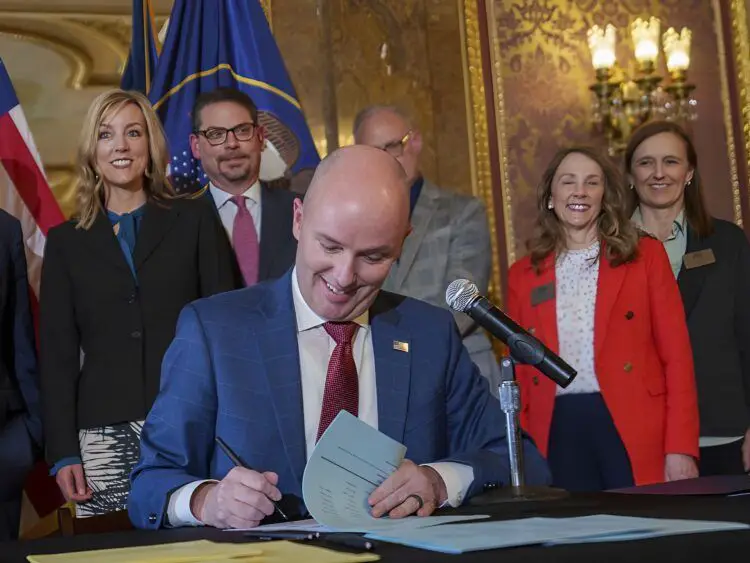As the first US state, Utah now demands that social media companies obtain parental approval before allowing youngsters to use their apps and confirm that users are at least 18 years old.
The governor stated that he signed two comprehensive laws to safeguard children in the state.

How will the new laws restrict the social media usage of teens?
According to the legislation, parents will have complete access to their children’s online profiles, including public and private messages.
The decision was made in the wake of growing anxiety around social media’s effects on children’s mental health.
A parent or guardian’s express permission is required under the Thursday legislation before youngsters can open accounts on applications like Instagram, Facebook, and TikTok.
The bills also enforce a social media curfew that prevents kids from using the sites between the hours of 22:30 and 6:30 unless their parents change it.
The law prohibits social media corporations from collecting children’s data or using it to target advertisements.

The two laws will go into effect on March 1, 2024, and they also aim to make it simpler to sue social media corporations.
Republican governor Spencer Cox posted the following on Twitter: “We’re no longer willing to let social media companies continue to harm the mental health of our youth.
“As leaders, and parents, we have a responsibility to protect our young people.”
We’re no longer willing to let social media companies continue to harm the mental health of our youth. Today we signed two key bills in our fight against social media companies into law:
➡️ SB152 requires social media companies to verify that users in https://t.co/GVAcSi9zHx… pic.twitter.com/M1Kbya1xQi
— Utah Gov. Spencer J. Cox (@GovCox) March 23, 2023
Children’s advocacy group Commons Sense Media praised the governor’s move to restrict some of the social media’s most addictive features, naming it a “huge victory for kids and families in Utah”.
“It adds momentum for other states to hold social media companies accountable to ensure kids across the country are protected online,” explained Jim Steyer, Common Sense Media’s founder and CEO.
Four additional Republican-led states, Arkansas, Texas, Ohio, and Louisiana, as well as Democratic-led New Jersey, are considering similar regulations.
Yet, some of the new legislation, according to Common Sense Media and other advocacy organizations, may endanger children.
The bill presented “serious free speech problems,” according to Ari Z Cohn, a free speech attorney with TechFreedom.

“There are so many children who might be in abusive households,” he told, “who might be LGBT, who could be cut-off from social media entirely.”
In response, Meta, the parent corporation of Facebook, claimed to have effective safeguards for young people.
As stated by a spokesperson, “We’ve developed more than 30 tools to support teens and families, including tools that let parents and teens work together to limit the amount of time teens spend on Instagram, and age verification technology that helps teens have age-appropriate experiences.”
Other US social media legislation intended to safeguard minors has had bipartisan support.
In his State of the Union address in February, President Joseph Biden called for legislation prohibiting internet corporations from gathering data on children.
The state of California established its own kid data bill last year. The California Age-Appropriate Design Code Act, among other things, mandates that digital platforms make the highest privacy settings for users under the age of 18 the default setting.
The passing of the Utah legislation comes only days after TikTok CEO Shou Zi Chew endured a testy congressional session. If you would like to also read Shou Zi Chew’s confessions at the TikTok congressional hearing, you may check out our article.





